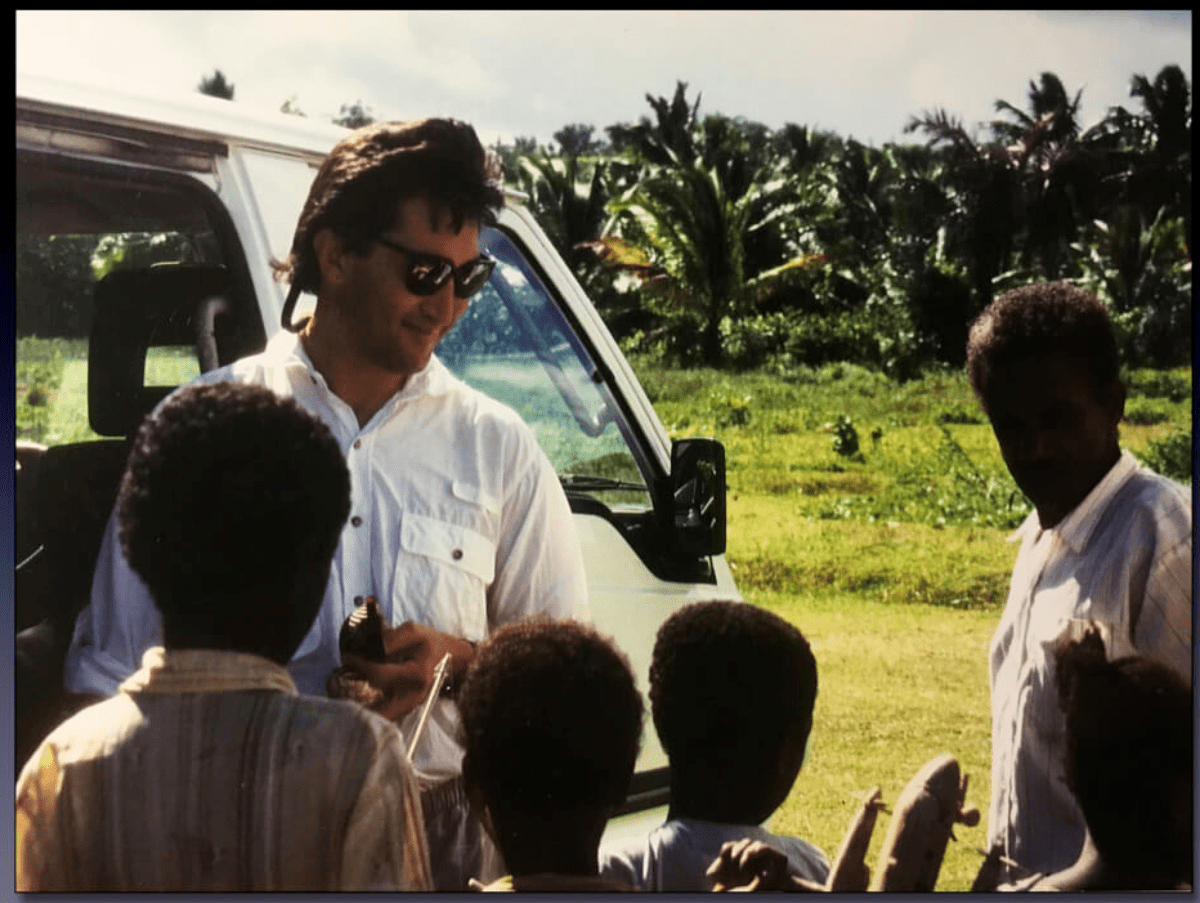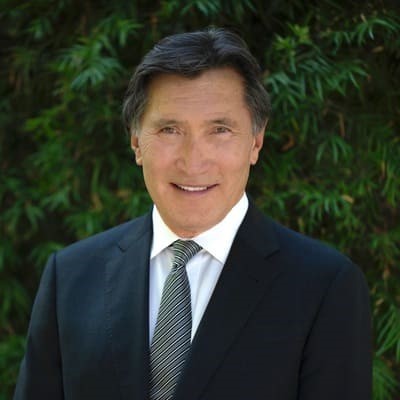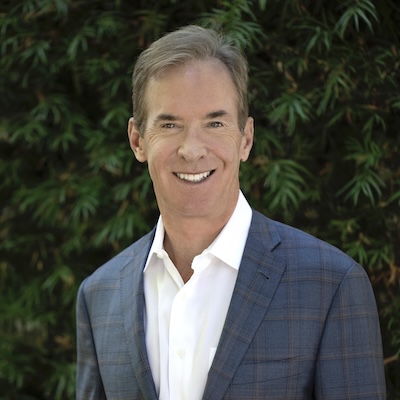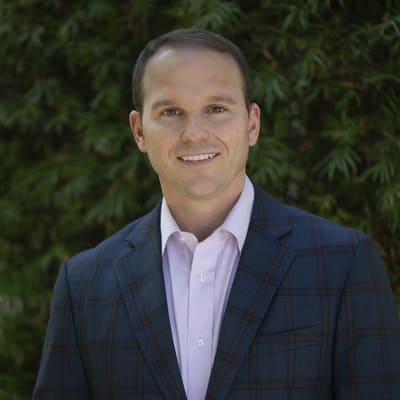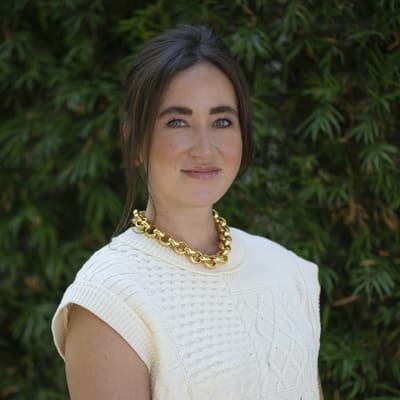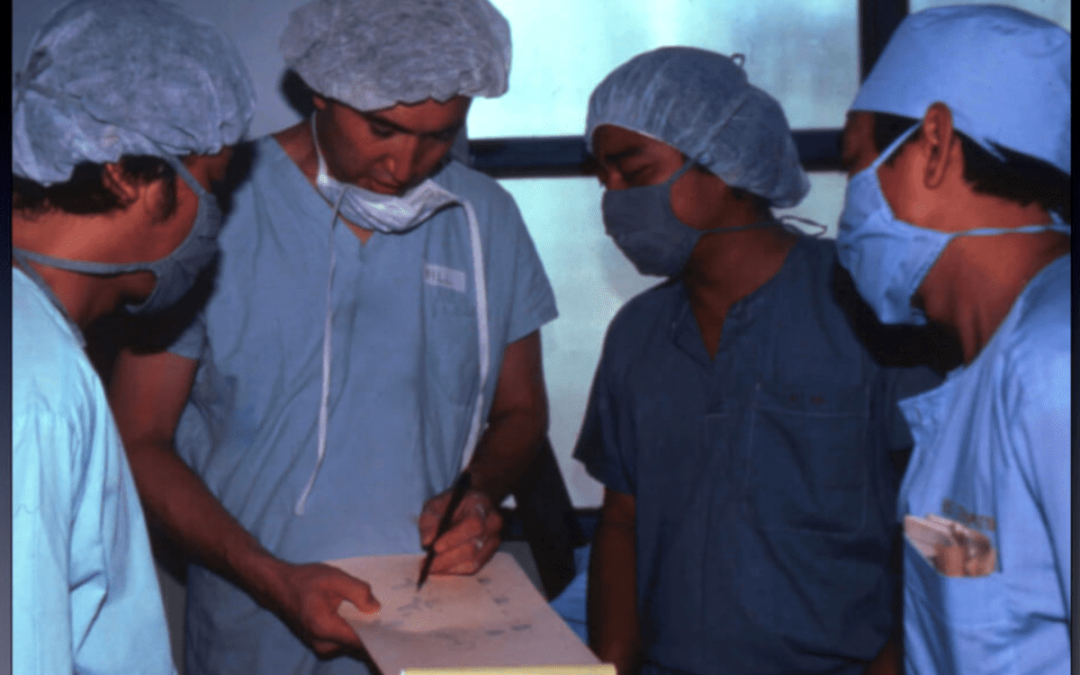Every other month Dr. McClure writes a column for the St. Helena Magazine. This article will come out in the May 2020 issue. Instead of focusing on an area of aesthetic surgery, Dr. McClure chose to focus on the COVID 19 outbreak, and how this disease is affecting his colleagues around the world.
As a senior medical student I served on a medical mission to Mexico where we operated on children with facial deformities. This experience inspired me to pursue a career in plastic surgery. Fortunately I was accepted into the plastic surgery training program at Stanford University, a residency that encouraged international humanitarian surgery. I was able to serve on seven trips abroad during my training, and able to continue doing this work when I began private practice in Napa. Since that first trip to Mexico I’ve lead and served on more than 85 missions.
Beyond the gratification that came with operating on children and teaching reconstructive surgery across the globe, came the delight in meeting like minded colleagues from around the world. We developed long term relationships. Many of the these friends were young doctors whom I helped train. Others were volunteers like myself hailing from other countries.
With the COVID 19 outbreak and resulting shelter-in-place, Napa Solano Plastic Surgery had to put our elective surgeries and treatments on hold. Being less busy, I found time to connect with friends of mine from around the world. I wanted to see how they and their families were faring in this unprecedented pandemic.
Working in a different country and making friends with its people can be a blessing and a curse. A blessing is understandable, but why a curse? Once one has made an emotional investment in a country and its people, one suffers when that country experiences a horrific event; be it war, natural disaster, or social disruption. The 17th century poet John Donne expressed this feeling of interconnectedness with everyone in the world in his poem which begins with the line, “No man is an island, entire of itself.”
My dear friend Dr. Jorge Palacios of Guayaquil, Ecuador where the virus has taken a horrible toll, lost two of his fellow surgeons, and his grandchild’s pediatrician. My friend Deogratias and his medical colleagues in Burundi (Central Africa), a country of 12 million with less than a dozen ventilators, await helplessly as the pandemic surge moves south. Dr. Ian Zlotolow who has joined me in Laos, Vietnam, and El Salvador now works in NYC’s borough of the Bronx, where they are experiencing the highest death rates in the US. Dr. Paolo Morselli of northern Italy who worked with me in India and Bhutan, has seen the highest death toll in Europe including more than 100 doctors and even more health care workers. I worry about my Central American and South Asian colleagues, in countries that are not capable of handling a surge. Or colleagues in Brazil (210 million people) where the government is woefully unprepared to fight the outbreak. Great Britain which was also unprepared for the onslaught has lost more than 100 National Health Service workers. Dr. Peter Townsend, an intensivist, who worked with me in Colombia, Laos and Romania is in the thick of this battle.
On a positive note, Dr. Dietmar Scholz from Germany who had joined me in Vietnam and Africa, reports that his country has “flattened the curve.” He has begun doing elective surgery again. My many colleagues in Vietnam are rightfully proud that they have contained the virus with less than five deaths in this country of 95 million! Friends, who were fellow volunteers from Taiwan, Hong Kong, and South Korea, were pleased to report turning the corner on the outbreak with very few deaths.
My experiences abroad have taught me that we are in this battle together. We live in a world in which we need to share responsibility for each other’s well being. As John Donne ends his poem:
Any man’s death diminishes me,
Because I am involved with mankind.
Therefore, never send to know
for whom the bell tolls,
It tolls for thee.
